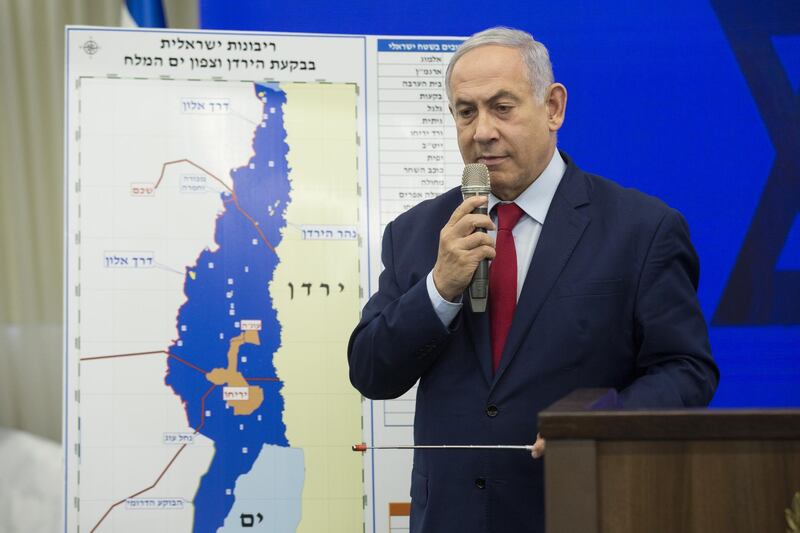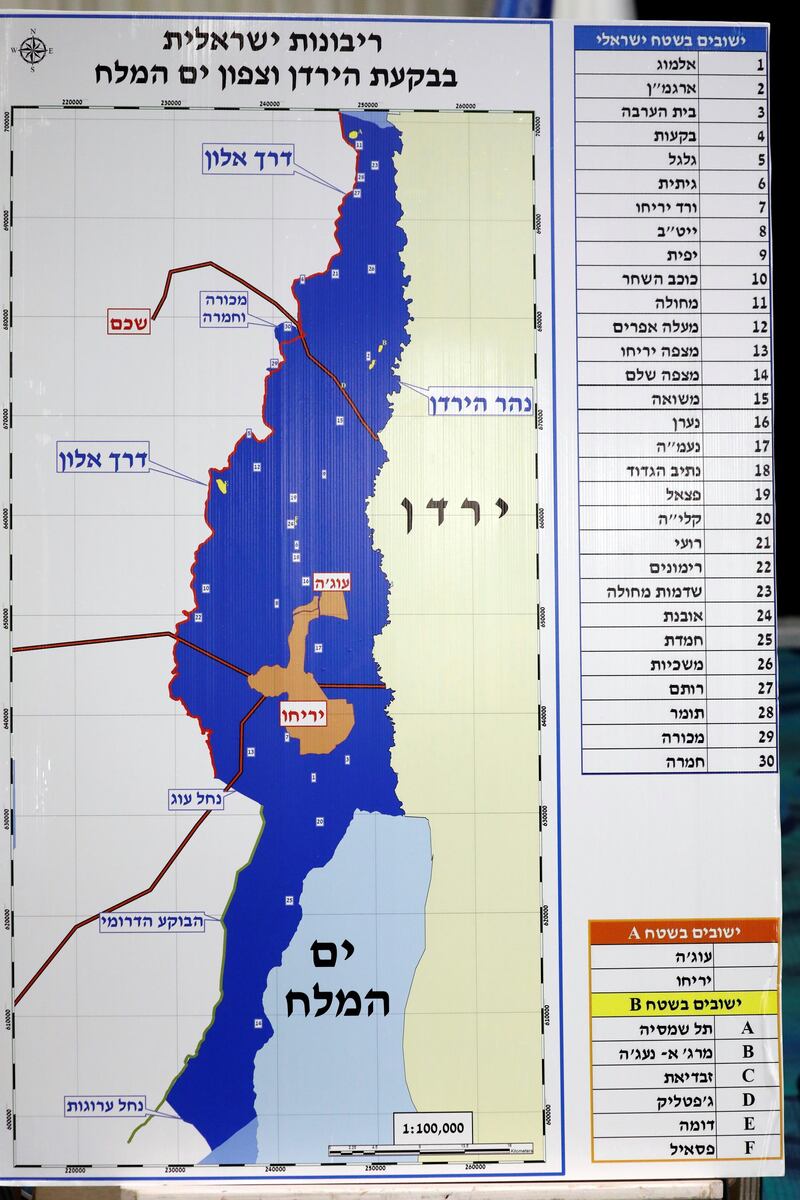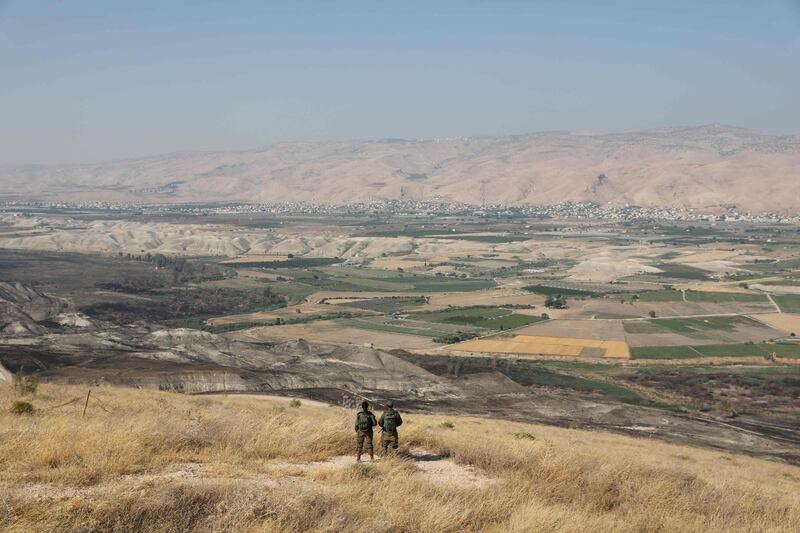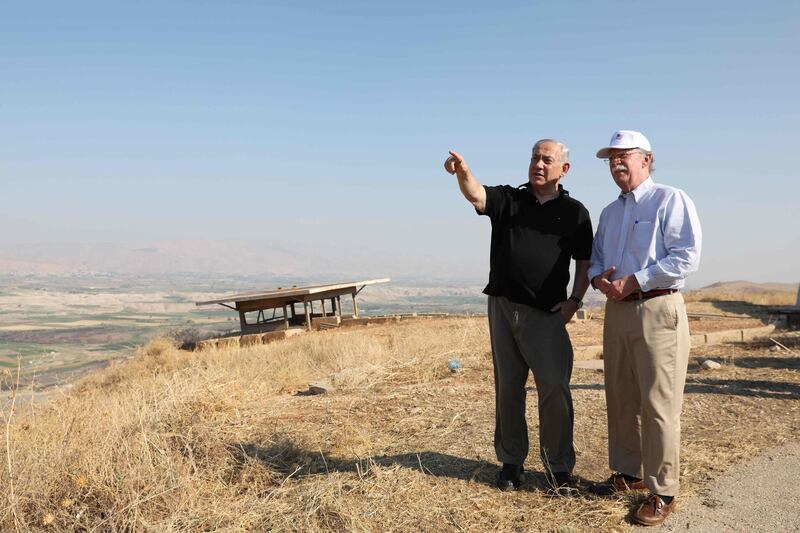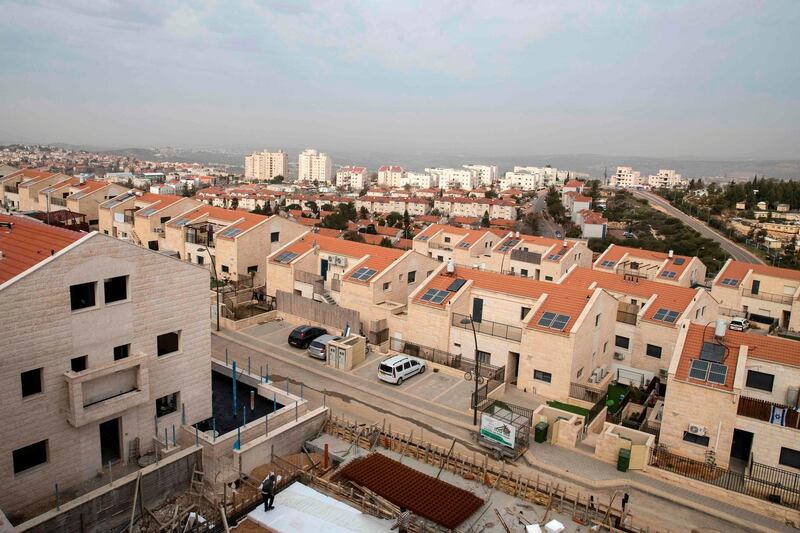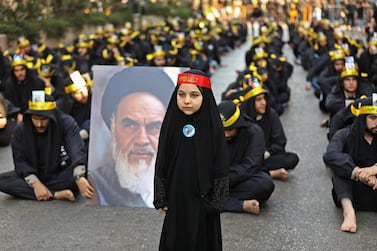The UAE and Saudi Arabia have strongly condemned and rejected Israeli Prime Minister Benjamin Netanyahu's pledge to annex the Jordan Valley in the occupied West Bank.
In a statement released by the UAE's state news agency Wam, Sheikh Abdullah bin Zayed, Minister of Foreign Affairs and International Co-operation, said that this announcement represents a dangerous escalation that violates all international resolutions without the slightest regard for their legitimacy.
Sheikh Abdullah said the declaration threatens to undermine decades of political efforts by the international community to achieve a resolution to the Palestinian issue – a central cause for Arabs and Muslims.
Saudi Arabia also said that it the announcement marks a "dangerous escalation against the Palestinian people" and called for an emergency meeting of foreign ministers from the 57 member states of the Organisation of Islamic Cooperation.
Mr Netanyahu said he would annex the area if he wins the country's repeat election on September 17. It had long been rumoured that he would move to annex parts of the occupied West Bank, or at least promise to, in a bid to win more right-wing votes.
But the decision riled the Arab world, with top officials saying that his announcement undermined any chances of a peace deal with the Palestinians.
The Arab League "considers his announcement a dangerous development and a new Israeli aggression by declaring the intention to violate the international law," Arab foreign ministers said in a statement after a meeting in Cairo.
"The league regards these statements as undermining the chances of any progress in the peace process and will torpedo all its foundations," they said.
The foreign ministers had been holding a meeting in Cairo, the seat of the Arab League, but added an emergency session after Mr Netanyahu made his comments on live television.
The 57-nation OIC also condemned Mr Netanyahu's proposal, saying it would convene to "take urgent political and legal measures to address this aggressive Israeli position". The six-nation Gulf Co-operation Council likewise condemned Mr Netanyahu's announcement.
An EU statement said Mr Netanyahu's plans would "undermine the viability of the two-state solution and the prospects for a lasting peace." The United Nations also condemned the announcement.
"Any Israeli decision to impose its laws, jurisdictions and administration in the occupied West Bank is without any international legal effect," UN spokesman Stephane Dujarric said.
"Such a prospect would be devastating to the potential of reviving negotiations, regional peace and the very essence of a two-state solution."
Around 65,000 Palestinians and 11,000 Israeli settlers live in the Jordan Valley and northern Dead Sea area, the Israeli human rights group B'Tselem said. The main Palestinian city is Jericho, with about 28 villages and smaller Bedouin communities.
Jordanian Foreign Minister Ayman Safadi on Twitter called Mr Netanyahu's plan a "serious escalation". Jordan and Egypt are the only Arab states to have peace treaties with Israel.
The kingdom's royal court released a strongly-worded statement. "The Arab and Islamic worlds' preoccupation with many local and regional crises will not affect the status of the Palestinian cause," it read. "Israel's attempts to impose a fait accompli policy will not obliterate the inalienable and protected rights of the Palestinian people."
Hanan Ashrawi, a senior official in the Palestine Liberation Organisation, wrote on Twitter that the Israeli leader was out to impose a "greater Israel on all of historical Palestine and (carry) out an ethnic cleansing agenda".
The Syrian regime, which has been locked in an escalation with Israel alongside its backers Iran and Lebanese Shiite militia Hezbollah, accused Israel of expansionism.
"Syria strongly condemns the prime minister's announcement," a Syrian foreign ministry source told state news agency Sana, warning Israel against a "flagrant violation" of international treaties.
The source said that the planned move is consistent with Israel's "expansionist nature" and its history of "attacking the rights of Palestinians."
Fighting for his political life after an inconclusive election in April, Mr Netanyahu also reaffirmed a pledge to annex all of the settlements Israel has established in the West Bank.
White House senior adviser Jared Kushner said in early May that he hoped Israel would take a hard look at President Donald Trump's coming Middle East peace proposal before "proceeding with any plan" to annex occupied West Bank settlements.
Israel captured the West Bank and East Jerusalem from Jordan in the 1967 war. Over 2.5 million Palestinians now live there, in addition to nearly 700,000 Jewish settlers. Israel already has annexed East Jerusalem in a move that is not internationally recognised. The international community, along with the Palestinians, overwhelmingly considers Israeli settlements in the West Bank and east Jerusalem illegal.
The Jordan Valley is relatively sparsely populated and seen by Israel as a key strategic asset since it provides a buffer zone against potential attacks from the east.
Mr Netanyahu did not detail what would happen to the Palestinian residents of the Jordan Valley if he went forward with his plan.
